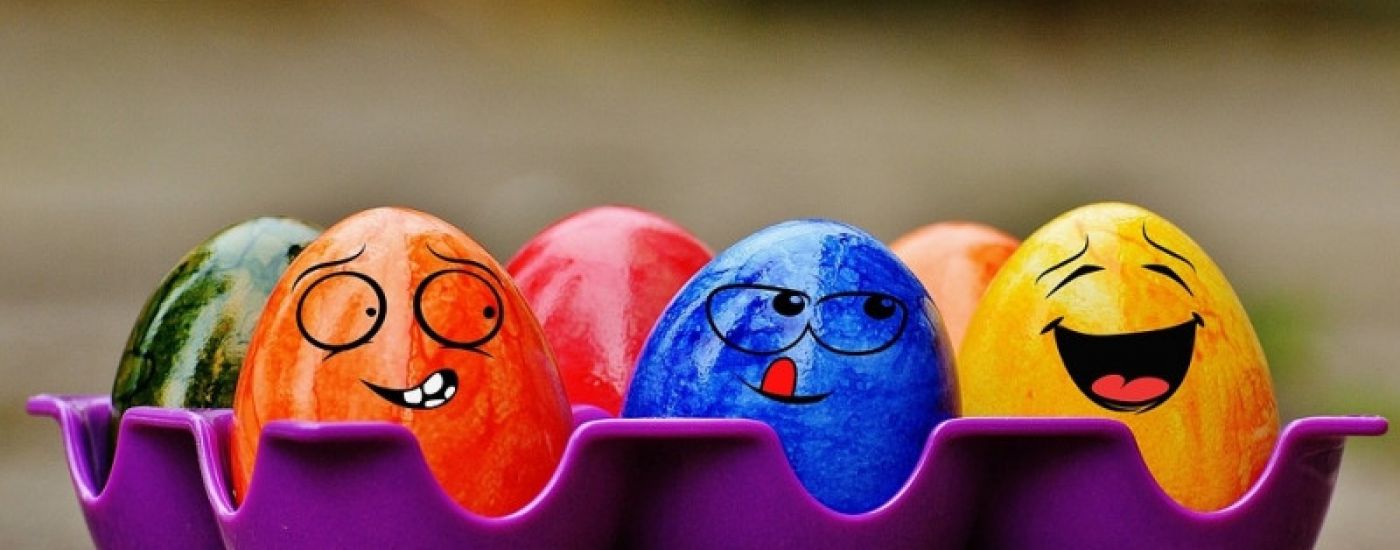Easter is synonymous with Bank Holiday Monday and chocolate eggs, brought by the bells or the Easter Bunny depending on the region. But did you know that this festival and its traditions sometimes go back several millennia? Discover their history and origin!
Easter: the origins
In ancient times, Easter was simply a pagan festival celebrating spring and renewal that coincided with the first full moon after the equinox.
Among Christians, Easter celebrates the resurrection of Jesus after his crucifixion on Good Friday. It follows Lent, which begins with Ash Wednesday (if you have been following our posts on Candlemas and Mardi Gras you will know what it is about). Lent lasts 40 days and is a period of spiritual preparation for Easter.
Passover (Pessa'h in Hebrew) celebrates the exit from Egypt and the liberation of the Hebrew people, the crossing of the Red Sea that separates the land of bondage from the promised land, the passage from slavery to freedom. Passover is the festival of liberation.
Easter: a religious festival...in secular France
In France, a country with a Christian tradition, Easter is the most important festival after Christmas or even before Christmas.
But even though Easter Monday is a public holiday everywhere in France (and Good Friday is a holiday in Alsace, according to local Alsatian law), France remains a secular country (since the 1905 Law which ensures the freedom of conscience of everyone and the separation of the State and the Church). There are therefore no major official celebrations for Easter.
In some cities where the religious tradition is stronger, there are celebrations but they are not at all on the scale of Semana Santa in Spain, for example. It is much more local and fewer people participate. You can see celebrations in Mont Saint Michel for example, or in Lourdes which is a pilgrimage town, or in Corsica in particular.
Easter in France: chocolate, family reunion and conviviality
Easter traditions do exist, however, whether the holiday is celebrated for religious reasons or not:
In families that value Easter traditions, Sunday is the occasion to prepare and eat Easter lamb (leg of lamb or lamb-shaped dessert in Alsace) or Easter pâté in some regions. Lamb is traditionally eaten on this feast day, in memory of the lamb sacrificed before the exile from Egypt, to protect the first-born Hebrews from the tenth plague of Egypt. But it also refers to Jesus, who sacrificed himself to redeem human sin. The lamb is seen as a symbol of purity and justice.
On Easter Sunday, there is an Easter mass and church bells ring out everywhere. The Easter bells "are back" and bring the chocolates that children collect from gardens, and from public parks in some cities.
In general, Easter is a time for family reunion for many French people. Indeed, as Easter takes place between March and April, it coincides with the beginning of spring, and in some years, the possibility to eat in the garden and enjoy the sun.
We also give each other chocolate.
Easter: where does the tradition of chocolate eggs come from?
The egg is a strong symbol of fertility and rebirth. It is therefore the ideal representation of Spring.
In France, this tradition is linked to the Easter celebrations from the 13th century. Cooked hen eggs are painted red to recall the blood of Christ, before being offered. This tradition is all the more symbolic as it is forbidden to eat eggs during Lent (the 40-day fasting period preceding Easter).
Over the centuries, the decorations on these eggs became more and more refined, as shown by the eggs decorated by Watteau and given to a daughter of Louis XV, or the famous Fabergé eggs ordered by the Russian imperial family.
Chocolate was a very late addition to this tradition. From the 18th century onwards, in the upper echelons of society, some eggs were emptied and filled with liquid chocolate. It was not until the middle of the 19th century that the technique for solidifying chocolate was developed. It was democratised at the end of the Second Empire
Since that time, Easter has been associated with eggs, chickens and other chocolate figures!
But who brings these chocolates into our gardens and homes?
In France, in most regions, the tradition is that of the bells. The bells have been in Rome since Maundy Thursday, when they stopped ringing, and are supposed to return to our churches on Easter Day. On their way, they announce the resurrection of Christ and sow a multitude of chocolates and sweets in their path.
Easter: a little holiday feeling
At last, Easter means renewal, and as it is in April and Monday is a public holiday, it is also synonymous with holidays for many French people. We are finally out of winter, spring is here, it's also the children's school holidays and we are starting to feel like spending weekends in the sun or at the other end of the world.
To end this article on a high note, here are some typical recipes to celebrate Easter:
https://cuisine.journaldesfemmes.fr/idees-recettes/2640229-recettes-paques-2022-entrees-plats-desserts-nos-idees/
Happy Easter to all!
Sources :
https://www.destinationlangues.com/2022/04/11/les-fetes-de-paques-et-leurs-traditions/
https://polyglottes.org/2018/04/02/que-font-les-francais-a-paques-ressource-fle/

